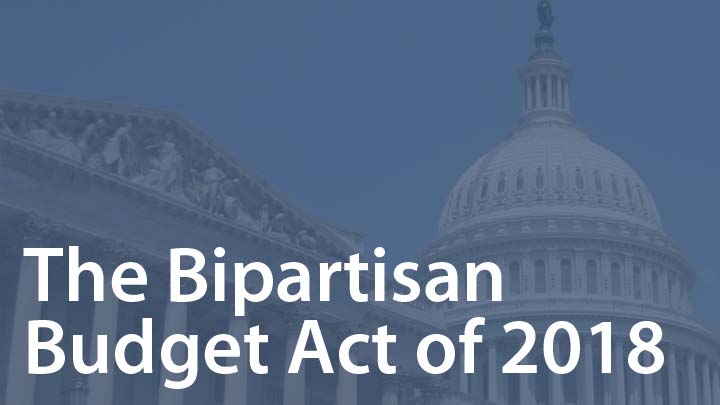Significant changes to the partnership audit rules are now in effect. As tax practitioners continue to familiarize themselves with changes made by the Tax Cuts and Jobs Act, the 2018 filing season marks the first time practitioners will need to make elections under the new partnership audit rules. The Bipartisan Budget Act (“BBA”) repealed the existing partnership audit rules under the Tax Equity and Fiscal Responsibility Act (“TEFRA”) to usher in a new streamlined partnership audit regime. Unlike TEFRA, the BBA rules contain no automatic exception for small partnerships. All entities classified as partnerships for federal income tax purposes are subject to the BBA rules unless the partnership affirmatively opts out. Partnerships eligible to opt out of the BBA must affirmatively elect out each year. Partnerships that do not affirmatively opt out of the BBA in a given tax year will be subject to the BBA rules in the event of an IRS examination. Partnerships refraining from opting out of the BBA will have an opportunity to make a “push out” election discussed below.
From Aggregate to Entity – New Rules Shift Focus from Partners to Partnership
Under the old TEFRA rules, partnership items were examined at the partner level for small partnerships and at the partnership level for large partnerships. Partners enjoyed significant rights to notice and participation in the audit and appeal process. When audit changes were made, the tax burden for those changes fell on the persons who were partners during the examined tax periods. Under new BBA audit rules, the focus is on the partnership as an entity for both examination and collection purposes. Adjustments to the partnership tax return will now be issued to the partnership through a Notice of Final Partnership Adjustment for the year in which an examination concludes, termed the “adjustment year” under the BBA legislation, not the tax year of the return examined. Under the BBA, a Notice of Final Partnership Adjustment issued to a partnership in 2019 for tax year 2018 would be borne by those persons remaining partners in 2019. For partnerships undergoing ownership changes, the BBA rules significantly impact liability for tax deficiencies resulting from IRS audits. If an individual is a partner during 2018 but not 2019, that individual would not be responsible for any part of adjustments made in 2019 based on the examination of the partnership’s 2018 tax return unless the partnership filed a timely election in 2019 to “push out” the tax deficiency to its 2018 partners.
Appointment of a Partnership Representative
The BBA rules also replace the “Tax Matters Partner” with the “Partnership Representative”. Partnerships are required to appoint a Partnership Representative with the exclusive authority to represent the partnership before the IRS and make all decisions relating to elections, examinations and settlements. Unless restricted by a partnership’s governing documents, the Partnership Representative’s authority dwarfs that of the historic Tax Matters Partner.
Opting Out of the BBA
Under BBA rules, partnerships that have not opted out of the regime must either (a) pay any net increase in income tax at the highest possible rate of 37% and pass this economic burden to current partners – even if they were not partners during the year under examination; or (b) file a push out election within 45 days after the Notice of Final Partnership Adjustment is issued to “push” the tax liability out to those persons who were partners during the year under examination.
Partnerships eligible to opt out of BBA audit rules include only those partnerships that have (a) no more than 100 partners, and (b) no partners taxed as either a partnership, trust or disregarded entity – including a single member limited liability company. An important BBA distinction that practitioners must be aware of is that there is no longer an automatic opt out for small partnerships. Partnerships eligible to opt out of BBA rules must make an annual election when filing their partnership income tax return. For tax year 2018, the opt out election is made by checking “yes” on Line 25 of the partnership’s U.S. Return of Partnership Income (Form 1065) and completing Schedule B-2.
The decision to opt in or out of the BBA audit regime is a technical question requiring consideration of a partnership’s governing documents and the expectations of its partners. Careful consideration is warranted before making this decision.
The tax attorneys at McLaughlinQuinn LLC regularly represent clients in connection with IRS audits and in crafting organizational documents to operate in an evolving tax landscape. For more information on this newsletter, contact Cory J. Bilodeau, Esq., Tax Planning Partner, at (401) 655-2203 or via email at

